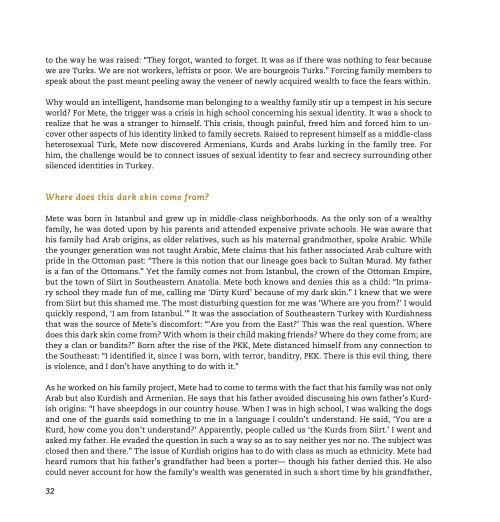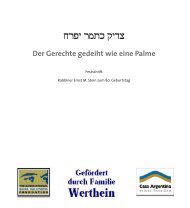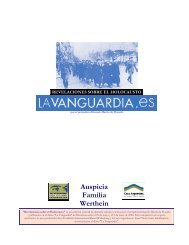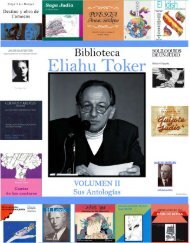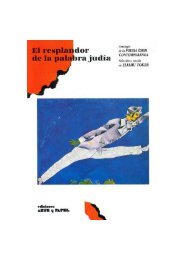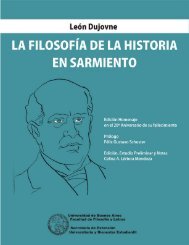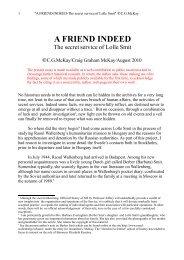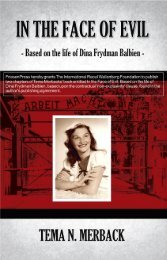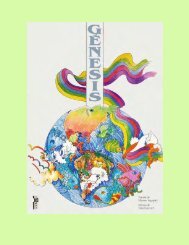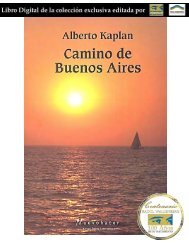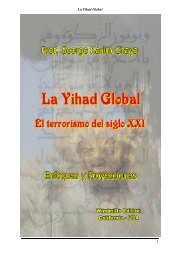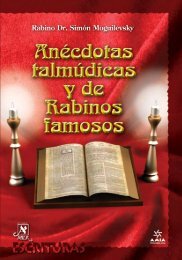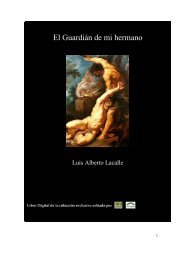Speaking to One Another - The International Raoul Wallenberg ...
Speaking to One Another - The International Raoul Wallenberg ...
Speaking to One Another - The International Raoul Wallenberg ...
- No tags were found...
You also want an ePaper? Increase the reach of your titles
YUMPU automatically turns print PDFs into web optimized ePapers that Google loves.
<strong>to</strong> the way he was raised: “<strong>The</strong>y forgot, wanted <strong>to</strong> forget. It was as if there was nothing <strong>to</strong> fear becausewe are Turks. We are not workers, leftists or poor. We are bourgeois Turks.” Forcing family members <strong>to</strong>speak about the past meant peeling away the veneer of newly acquired wealth <strong>to</strong> face the fears within.Why would an intelligent, handsome man belonging <strong>to</strong> a wealthy family stir up a tempest in his secureworld? For Mete, the trigger was a crisis in high school concerning his sexual identity. It was a shock <strong>to</strong>realize that he was a stranger <strong>to</strong> himself. This crisis, though painful, freed him and forced him <strong>to</strong> uncoverother aspects of his identity linked <strong>to</strong> family secrets. Raised <strong>to</strong> represent himself as a middle-classheterosexual Turk, Mete now discovered Armenians, Kurds and Arabs lurking in the family tree. Forhim, the challenge would be <strong>to</strong> connect issues of sexual identity <strong>to</strong> fear and secrecy surrounding othersilenced identities in Turkey.Where does this dark skin come from?Mete was born in Istanbul and grew up in middle-class neighborhoods. As the only son of a wealthyfamily, he was doted upon by his parents and attended expensive private schools. He was aware thathis family had Arab origins, as older relatives, such as his maternal grandmother, spoke Arabic. Whilethe younger generation was not taught Arabic, Mete claims that his father associated Arab culture withpride in the Ot<strong>to</strong>man past: “<strong>The</strong>re is this notion that our lineage goes back <strong>to</strong> Sultan Murad. My fatheris a fan of the Ot<strong>to</strong>mans.” Yet the family comes not from Istanbul, the crown of the Ot<strong>to</strong>man Empire,but the <strong>to</strong>wn of Siirt in Southeastern Ana<strong>to</strong>lia. Mete both knows and denies this as a child: “In primaryschool they made fun of me, calling me ‘Dirty Kurd’ because of my dark skin.” I knew that we werefrom Siirt but this shamed me. <strong>The</strong> most disturbing question for me was ‘Where are you from?’ I wouldquickly respond, ‘I am from Istanbul.’” It was the association of Southeastern Turkey with Kurdishnessthat was the source of Mete’s discomfort: “‘Are you from the East?’ This was the real question. Wheredoes this dark skin come from? With whom is their child making friends? Where do they come from; arethey a clan or bandits?” Born after the rise of the PKK, Mete distanced himself from any connection <strong>to</strong>the Southeast: “I identified it, since I was born, with terror, banditry, PKK. <strong>The</strong>re is this evil thing, thereis violence, and I don’t have anything <strong>to</strong> do with it.”As he worked on his family project, Mete had <strong>to</strong> come <strong>to</strong> terms with the fact that his family was not onlyArab but also Kurdish and Armenian. He says that his father avoided discussing his own father’s Kurdishorigins: “I have sheepdogs in our country house. When I was in high school, I was walking the dogsand one of the guards said something <strong>to</strong> me in a language I couldn’t understand. He said, ‘You are aKurd, how come you don’t understand?’ Apparently, people called us ‘the Kurds from Siirt.’ I went andasked my father. He evaded the question in such a way so as <strong>to</strong> say neither yes nor no. <strong>The</strong> subject wasclosed then and there.” <strong>The</strong> issue of Kurdish origins has <strong>to</strong> do with class as much as ethnicity. Mete hadheard rumors that his father’s grandfather had been a porter— though his father denied this. He alsocould never account for how the family’s wealth was generated in such a short time by his grandfather,32


